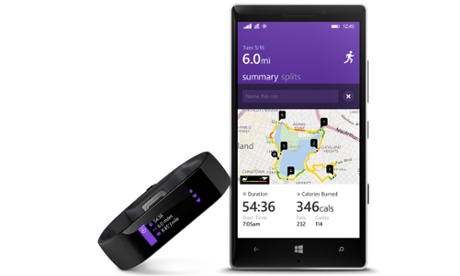 With recent details of the Microsoft Band 2 leaking this begs the question, are fitness trackers and other wearables just a fad or are they the future?
With recent details of the Microsoft Band 2 leaking this begs the question, are fitness trackers and other wearables just a fad or are they the future?
According to ABI Research by 2017, there will be 169.5 million wearable health and fitness devices on the market worldwide, up from 21 million in 2011 and this trend appears to be on the rise with many players competing for the is ever expanding niche market.
The number of players in this market is ever expading with players like Fitbit, Jawbone, Microsoft band and many others offering diverse experiences with their products which include full health statistics as seen by the Micorosft Health vault and many others.
Sure the fitness folks may be all in with these trackers but the general public is still skeptical with issues such as charging frequently still plaguing its wider adoption. Some of these issues are also seen by the smart watch market and still to be solved.
With technology rapidly evolving the fitness trackers provide great use in the health sector but not wider adoption else where. Some companies have gone on to suggest that the future lies with implantable devices sparking apocalyptic blog posts over the web. Even as chips get smaller, faster and more efficient, the trackers will be become smaller and cheaper too making them accessible to a wider audience but will face stiff competition from implantable technology which is being pushed by companies to provide solutions for biometric authentication and other medical uses.
The future may not incidentally lie in wearables but more with implantable devices as mainstream media and companies are starting to adopt early use cases like animal tracking, biometric authentication and others with legislation also strongly pushing for its adoption, the future may come sooner than we expect or think and maybe....just maybe the apocalyptic bloggers are onto something

